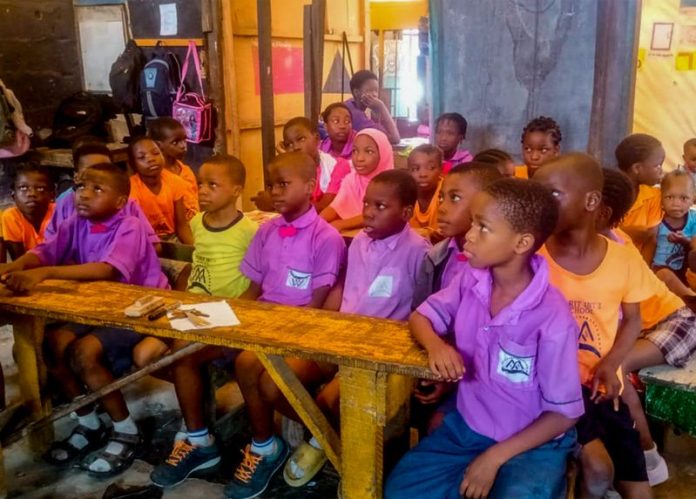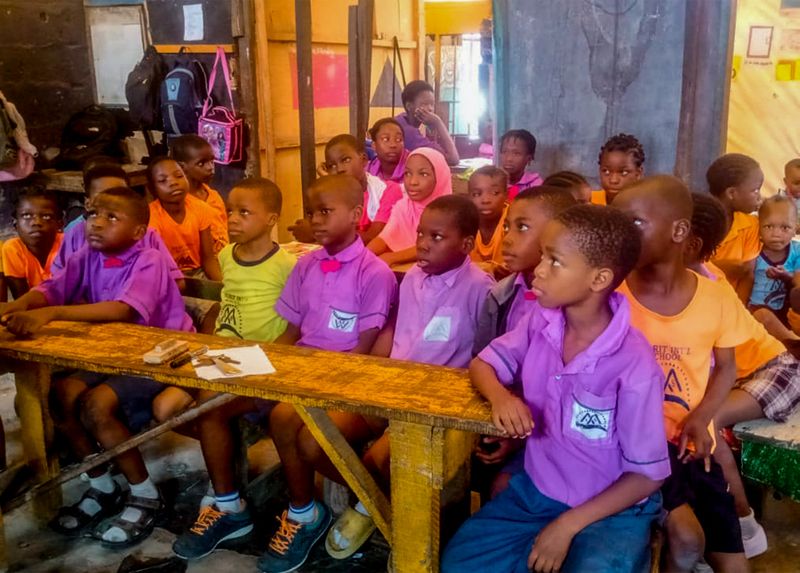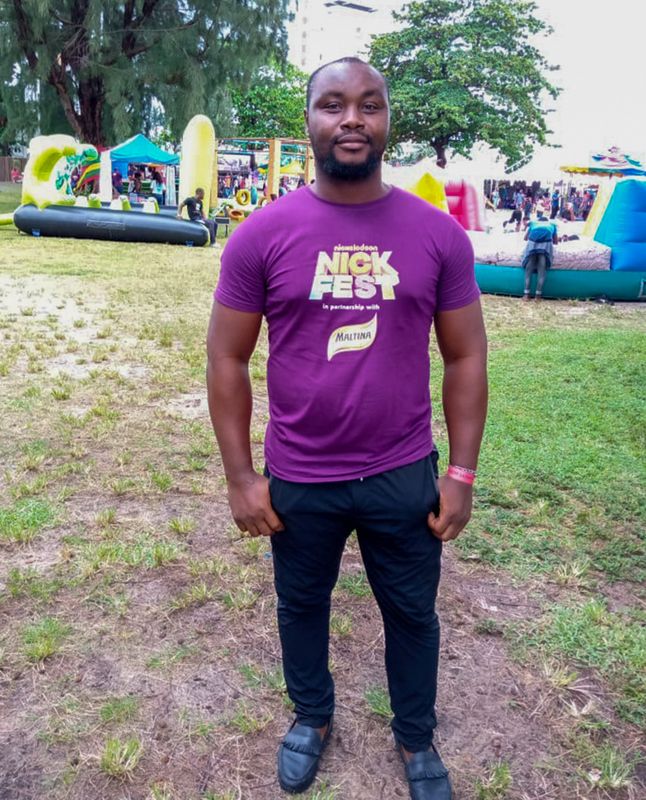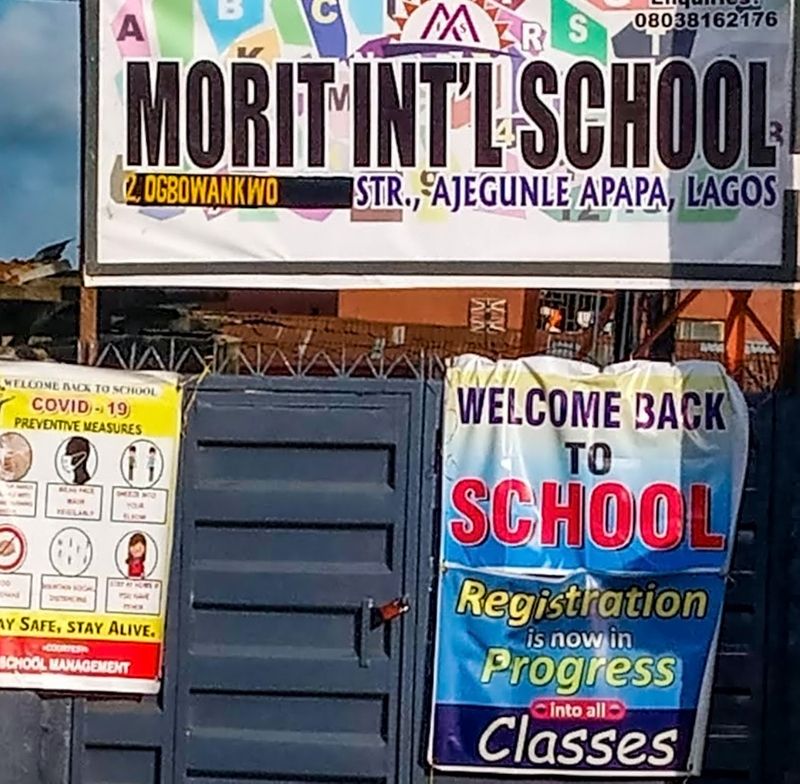When a neighbour recommended Morit International School to Ijeoma Obiora three years ago and told her the tuition was paid not in cash but through plastic bottles, she found it hard to believe. She had never heard of such a thing.
Today, her 13-year-old daughter has comfortably settled into the school.
“Academically, the school is very good for my daughter, who’s now in JSS 1. Financially, it removes my worries about having to provide education for her on a strict budget. These days, the first thing I do when I see a plastic bottle that has been thrown away picks it up. I don’t even think twice; the only thing on my mind is collecting waste to take to school,” said Obiora.
At Morit International School, one plastic bottle equals one naira, so parents bring a lot of plastic bottles to be weighed and sold, paying their children’s school fees in this unorthodox way.
Although it is the sole responsibility of the parents to gather the bottles for school fee payment, each student is encouraged to bring five bottles a day to teach them to be “environmentally responsible children for the future.”
This school is a solution to the two major problems Patrick Mbamarah noticed in his community, Ajegunle, an impoverished area of Lagos, in 2013: the growing number of out-of-school children and too many plastic bottles on the roads.
As a certified lesson teacher, he decided to solve the school problem first.
In 2015, he founded the Morit International School, also known as Green Minds Academy, and set the tuition fees as low as possible to make it accessible.
“I grew up here. This is my way of giving back to my community. Nigeria has an excessive number of out-of-school children. That bothered me, therefore I decided to provide affordable education with no matter what, and that means pushing through any difficulties. I’m passionate about what I’m doing,” said Mbamarah.
However, he soon ran into an unexpected obstacle.
“The tuition was 10,200 naira ($22.6) for preschool and 11,200 naira ($24.33) for primary school. But, to my surprise, many parents were still having financial difficulties and couldn’t pay the fees,” said Mbamarah.
Instead of giving up on his dream of providing affordable education to children in his community, Mbamarah began researching other avenues to raise funds.
This brought him to the second problem his community faced.
“I thought, ‘Why not create one solution for both problems?’ I had an upbringing in recycling; my mother reused plastic bottles and nylons. So I knew there was a solution there; I just had to find it,” he explained.
He soon conceptualised what is now known in his school and community as the Recycles Pay Educational Project.
In 2019, Morit International School collaborated with two recycling businesses, the African Cleanup Initiative and Wecyclers. The two-year partnership helped parents lift the burden of fee payment because pupils’ school fees could now be paid through plastic bottles.
By 2021, more recycling businesses and individuals were reaching out to be part of the Recycles Pay Educational Project.
Dolapo Olusanmokan, CEO of recycling outfit Alon Green, was one.
“When I saw what he was doing, I knew I needed to be part of it. He already had an agreement with some estates to give him access to a collection point, so what we do is pick up the recyclables in the Island area of Lagos at designated times. We weigh them and give cash in return for the PET bottles,” said Olusanmokan.
Olusanmokan is now in talks with Mbamarah to enhance the structure of the school to create better accommodations.
“Beyond what we’ve been doing so far, Mbamarah and I have had several discussions on how we can improve the state of the school for kids. Right now, it’s just benches and tables in a small space. We’re trying to do more for the kids, and he has put in a lot over the years. His dedication is commendable,” said Olusanmokan.
Mbamarah, however, still feels like he’s in the bootstrapping phase of his business.
“Donations have been very helpful when they come in because we use the bulk of the money to pay off debts and settle bills to keep the school going.”
“Presently, we have a preschool, primary school, and secondary school. Collectively, we are 115. Whenever there are external exams like the West Africa Certificate Examination (WAEC), we merge our students with other certified schools so they can write the exams in a state-recognised school. One of the reasons we’re yet to be certified is that we need structure and certain facilities. That’s what I’m working on right now,” Mbamarah explained.
Flourish Jimmy, a part-time mathematics and English teacher at Morit, said that despite the low wages, which mean he has to run a side hustle as a private teacher, he is keyed into Mbamarah’s vision, and there’s no turning back for him.
“Honestly, we’re barely keeping everything together financially, but I saw what he was doing, and I wanted to be a part of it too. Teaching my Basic Two students is fulfilling because I know I’m adding value to their lives,” Jimmy said.
Today, people in the neighbourhood voluntarily gather discarded plastic bottles from the streets and keep their recyclables to give to the school.
Mbamarah’s next project is to gather one million plastic bottles to keep 1,000 children in school in the Ajegunle area.
Story by Gabriella Opara for bird story agency
Share your story or advertise with us: Whatsapp: +2347068606071 Email: info@newspotng.com


















